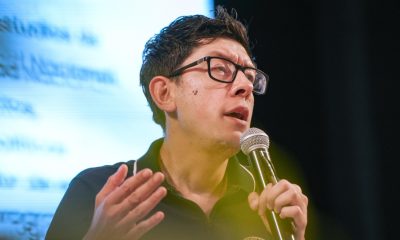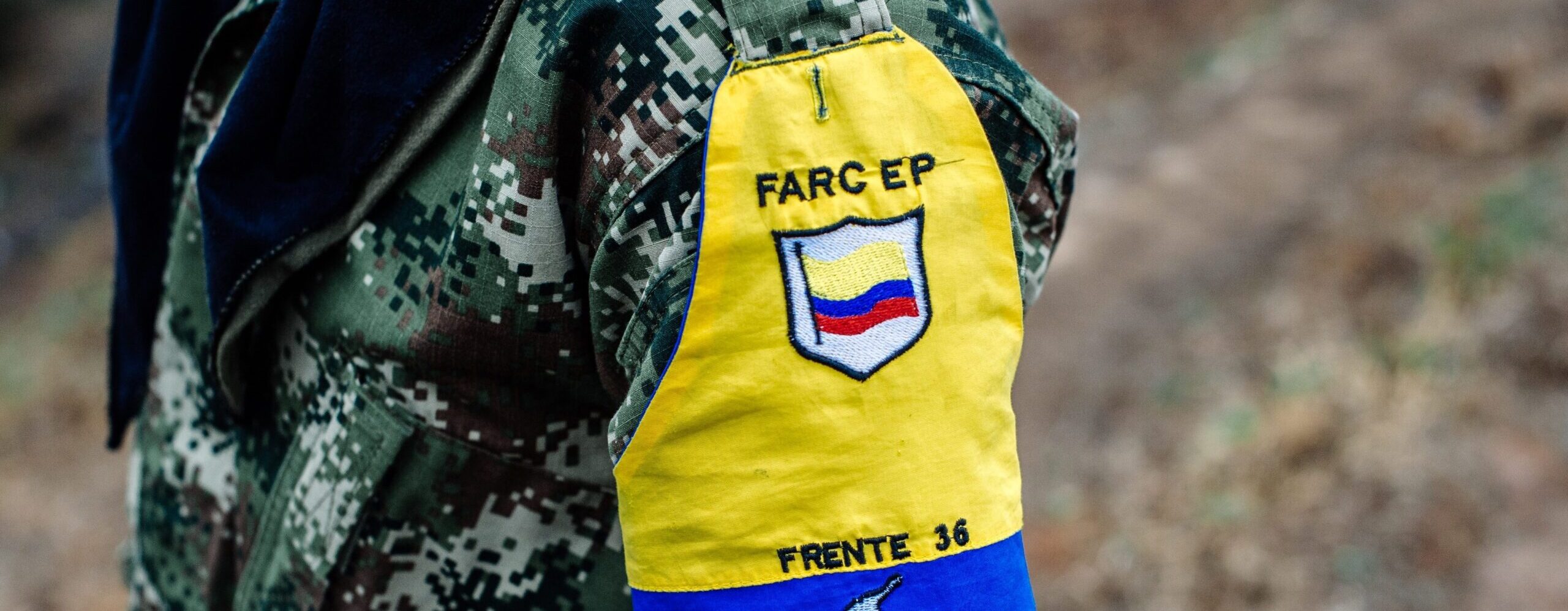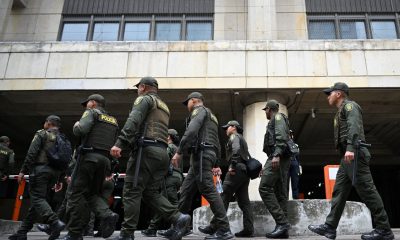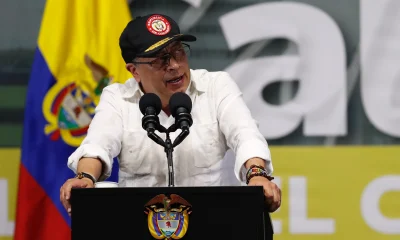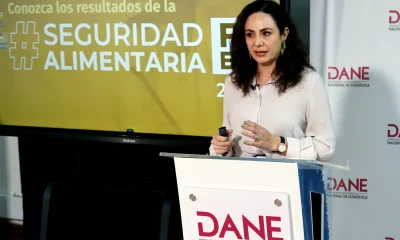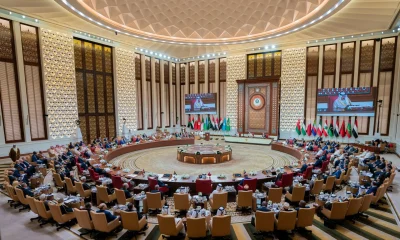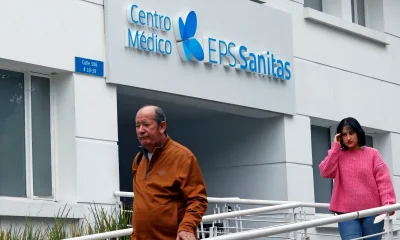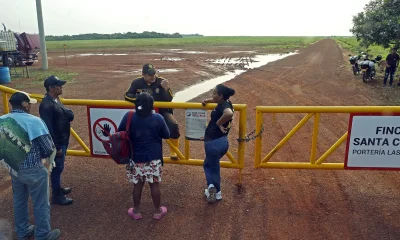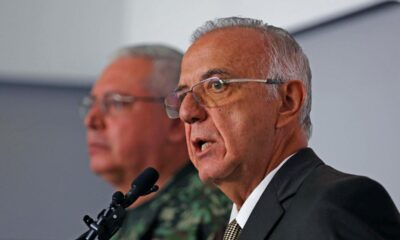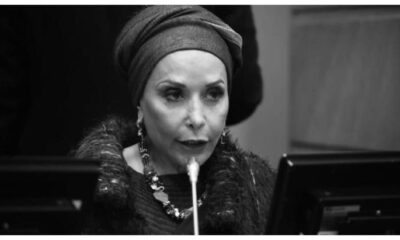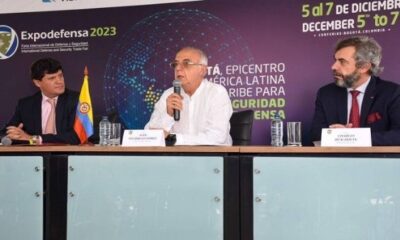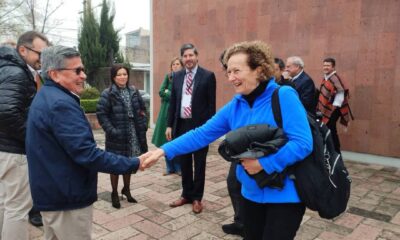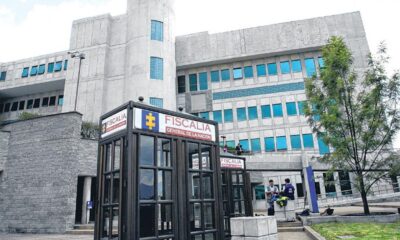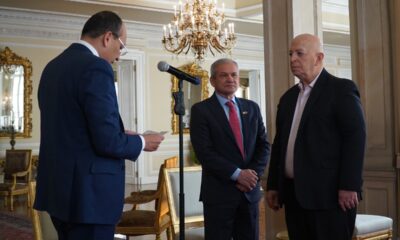International
Mexican cartels: the hidden hand behind Colombia’s drug trade
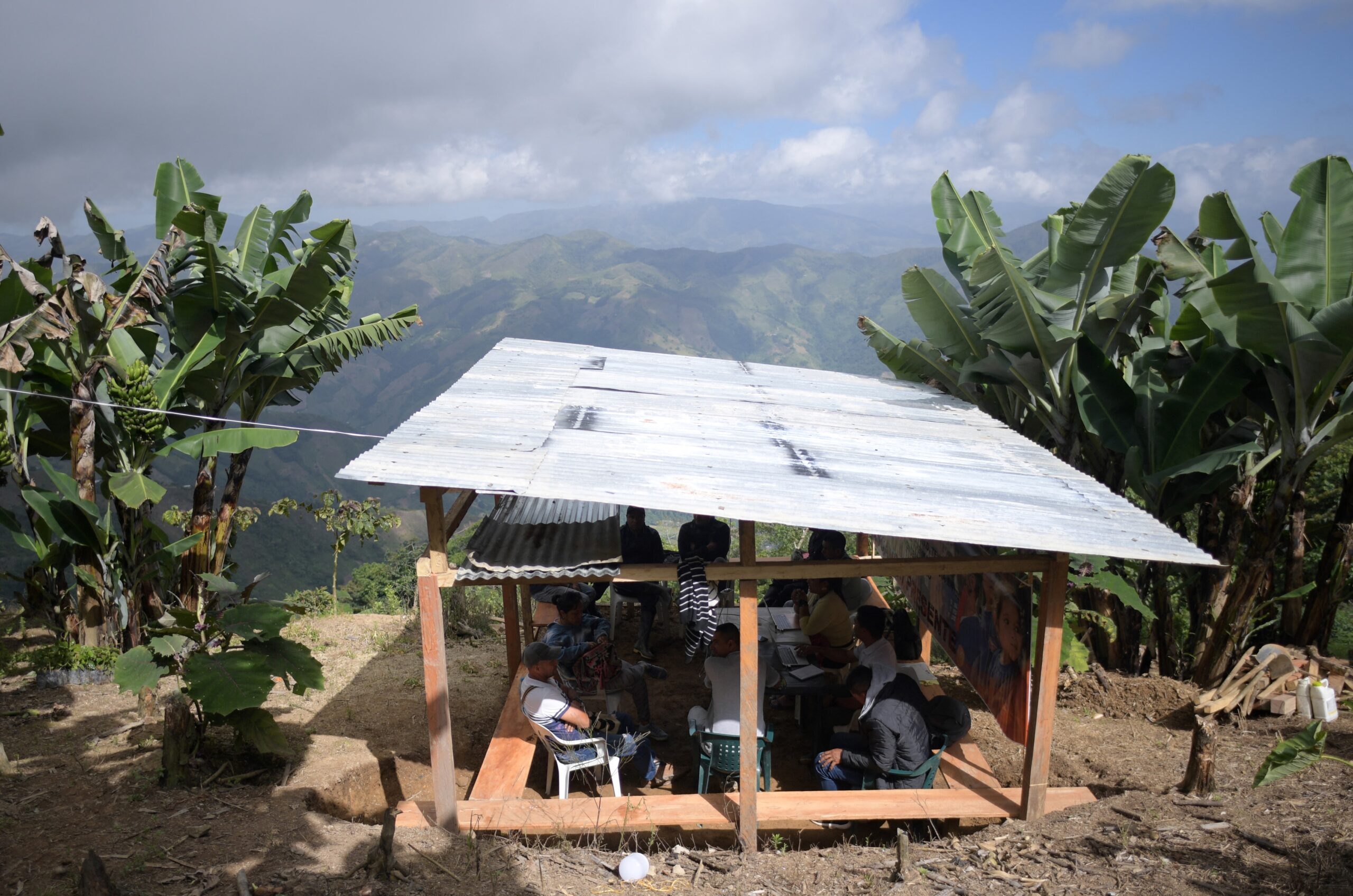
January 16 | By AFP | Diego Legrand and Hector Velasco |
A wide-brimmed hat, leather bandolier, rifle in hand: Colombian drug lord Pablo Escobar used to dress up as a Mexican revolutionary hero for amusement.
But during his heyday as the world’s most wanted drug baron, he could not have imagined that Mexicans — then mainly smugglers for the Colombians — would end up running the empire he had constructed with so much bloodshed.
From being a mere stop on the smuggling route to the United States in the 1980s and 1990s, Mexican cartels have largely taken over the business, financing drug manufacturing in Colombia and controlling shipments to the United States via Central America.
“Power has shifted from the Colombians to the Mexicans, because those who control the most profitable parts of the business have changed,” Kyle Johnson, an expert at the Conflict Responses Foundation in Bogota, told AFP.
For more than a decade in the 1980s, Escobar and his feared Medellin cartel dominated global cocaine trafficking with his rivals of the Cali cartel, which in turn controlled the trade after the drug lord was shot dead by police in 1993.
Forty years of America’s “war on drugs” later, Colombia remains the world’s biggest cocaine producer, and the United States its biggest consumer.
A kilogram (2.2 pounds) of cocaine, which sells for just under $1,000 in Colombia, fetches as much as $28,000 in the United States and about $40,000 in Europe, according to the specialized site InSight Crime.
But the fall of the kingpins — first Escobar, then the Cali cartel’s Rodriguez Orejuela brothers — had an unintended consequence.
Colombian drug traffickers “atomized” into smaller groups that are more difficult to trace and eradicate.
‘The Invisibles’
It also left a void for Mexican cartels to fill.
In the 1990s, “there was a sort of division of labor: the Colombians produced and packed the coca, moved it to the Pacific or Caribbean coast or the ports (while) the transfer to Mexico… or the United States was done by Mexicans,” retired police general and former vice president Oscar Naranjo told AFP.
Today, the Mexicans control several aspects of the business, shipping cocaine directly from Colombia to the United States in speed boats or semi-submersibles.
With the US market largely in Mexican hands, Colombian groups have increasingly set their sights on Europe.
In the last three years, drugs from the South American country have been arriving by cargo ship “in very large quantities” in Spain, Belgium or the Netherlands, said Esteban Melo, coordinator of the UN Office on Drugs and Crime in Colombia.
The Mexican traffickers are known in Colombia as “The Invisibles,” said Melo.
For “financing… they do not need to be visible, they do not need a whole armed body behind them because they are not involved in the territorial disputes for the trafficking business,” he explained.
There are about 40 Mexicans in Colombian jails today, mainly on drug trafficking charges, according to Colombia’s human rights ombudsman.
Many are presumed emissaries of Mexico’s powerful Sinaloa and Jalisco New Generation cartels, most of them arrested in areas from where cocaine is shipped via the Pacific, the Caribbean and from the border with Venezuela.
‘More powerful’
“Mexican cartels today control everything from (cultivation of) the coca leaf to the sale of cocaine on a New York street corner,” then-senator, now-President Gustavo Petro said in August 2019.
These groups, he said, are “more powerful” than those led by Escobar or the Rodriguez Orejuela brothers.
Experts believe Mexican organizations may even be financing Colombian armed groups — at a deadly price — to capture drug routes formerly controlled by FARC guerrillas who disarmed under a peace deal in 2017.
The new government under Petro, Colombia’s first-ever leftist president, has an ambitious plan to extinguish the continent’s last internal armed conflict.
Petro is taking a carrot rather than stick approach, offering benefits to organizations that renounce violence and “peacefully” dismantle the drug business — including non-extradition to the United States.
Though weakened, Colombia’s drug groups still exact a heavy toll on a country that has seen six decades of internal conflict.
Last year, the Gulf Clan cartel — Colombia’s biggest — launched a violent retaliation for the extradition of its leader Dairo Antonio Usuga, known as “Otoniel,” to the United States on trafficking charges.
Three civilians, three soldiers and two police officers were killed.
If the Colombian drug networks accept the offer to lay down arms, “Mexican cartels… will face their biggest challenge to cocaine production and supply since the United States launched the global war on drugs in 1971,” the Colombian Association of Retired Armed Forces Officers has predicted.
International
U.S. Senate Rejects Budget, Bringing Government Closer to Shutdown Amid DHS Dispute

The U.S. Senate voted on Thursday against a budget proposal in a move aimed at pressuring changes at the Department of Homeland Security (DHS), following the killing of two civilians during a deployment of immigration agents in Minneapolis.
All Senate Democrats and seven Republican lawmakers voted against the bill, which requires 60 votes to advance, pushing the country closer to a partial government shutdown that would cut funding for several agencies, including the Pentagon and the Department of Health.
The rejection came as Senate leaders and the White House continue negotiations on a separate funding package for DHS that would allow reforms to the agency. Proposed measures include banning Immigration and Customs Enforcement (ICE) agents from wearing face coverings and requiring them to use body-worn cameras during operations.
The vote took place just hours after President Donald Trump said he was “close” to reaching an agreement with Democrats and did not believe the federal government would face another shutdown, following last year’s record stoppage.
“I don’t think the Democrats want a shutdown either, so we’ll work in a bipartisan way to avoid it. Hopefully, there will be no government shutdown. We’re working on that right now,” Trump said during a Cabinet meeting at the White House.
International
Trump Says Putin Agreed to One-Week Halt in Attacks on Ukraine Amid Extreme Cold

U.S. President Donald Trump said on Thursday that he secured a commitment from Russian President Vladimir Putinto halt attacks against Ukraine for one week, citing extreme weather conditions affecting the region.
“Because of the extreme cold (…) I personally asked Putin not to attack Kyiv or other cities and towns for a week. And he agreed. He was very pleasant,” Trump said during a Cabinet meeting broadcast by the White House.
Trump acknowledged that several advisers had questioned the decision to make the call.
“A lot of people told me not to waste the call because they wouldn’t agree. And he accepted. And we’re very happy they did, because they don’t need missiles hitting their towns and cities,” the president said.
According to Trump, Ukrainian authorities reacted with surprise to the announcement but welcomed the possibility of a temporary ceasefire.
“It’s extraordinarily cold, record cold (…) They say they’ve never experienced cold like this,” he added.
Ukrainian President Volodymyr Zelensky later commented on the announcement, expressing hope that the agreement would be honored.
International
Storm Kristin Kills Five in Portugal, Leaves Nearly 500,000 Without Power

Storm Kristin, which battered Portugal with heavy rain and strong winds early Wednesday, has left at least five people dead, while nearly half a million residents remained without electricity as of Thursday, according to updated figures from authorities.
The revised death toll was confirmed to AFP by a spokesperson for the National Emergency and Civil Protection Authority (ANPEC). On Wednesday, the agency had reported four fatalities.
Meanwhile, E-Redes, the country’s electricity distribution network operator, said that around 450,000 customers were still without power, particularly in central Portugal.
Emergency services responded to approximately 1,500 incidents between midnight and 8:00 a.m. local time on Wednesday, as the storm caused widespread disruptions.
The Portuguese government described Kristin as an “extreme weather event” that inflicted significant damage across several regions of the country. At the height of the storm, as many as 850,000 households and institutions lost electricity during the early hours of Wednesday.
Several municipalities ordered the closure of schools, many of which remained shut on Thursday due to ongoing adverse conditions.
Ricardo Costa, regional deputy commander of the Leiria Fire Brigade, said residents continue to seek assistance as rainfall persists.
“Even though the rain is not extremely intense, it is causing extensive damage to homes,” he noted.
In Figueira da Foz, a coastal city in central Portugal, strong winds toppled a giant Ferris wheel, underscoring the severity of the storm.
-

 Central America5 days ago
Central America5 days agoGuatemala Police Arrest Prison Guard Caught in the Act of Extortion
-

 Central America5 days ago
Central America5 days agoHonduras swears in conservative president Asfura after disputed election
-

 Central America5 days ago
Central America5 days agoBukele leads public trust rankings as UCA survey highlights gains in security
-

 International4 days ago
International4 days agoFootball Fan Killed in Clashes After Colombian League Match
-

 Central America4 days ago
Central America4 days agoGuatemala President Says Starlink Terminal Found Inside Prison
-

 International5 days ago
International5 days agoDoomsday clock moves to 85 seconds before midnight amid rising global risks
-

 International5 days ago
International5 days agoWinter Storm Fern Leaves 30 Dead and Over One Million Without Power Across the U.S.
-

 International3 days ago
International3 days agoU.S. Senate Rejects Budget, Bringing Government Closer to Shutdown Amid DHS Dispute
-

 Sin categoría5 days ago
Sin categoría5 days agoEight Killed in Series of Armed Attacks in Ecuador’s Manabí Province
-

 International5 days ago
International5 days agoSpain approves plan to regularize up to 500,000 migrants in Historic Shift
-

 International4 days ago
International4 days agoMissing Spanish Sailor Rescued After 11 Days Adrift in Mediterranean
-

 International4 days ago
International4 days agoRubio Says U.S. Could Participate in Follow-Up Russia-Ukraine Talks
-

 Sin categoría5 days ago
Sin categoría5 days agoEl Salvador Launches Fourth Year of Ocean Mission to Protect Marine Ecosystems
-

 Central America2 days ago
Central America2 days agoPanama Supreme Court Strikes Down Panama Ports Concession as Unconstitutional
-

 International3 days ago
International3 days agoStorm Kristin Kills Five in Portugal, Leaves Nearly 500,000 Without Power
-

 Central America2 days ago
Central America2 days agoU.S. and Guatemala Sign Trade Deal Granting Zero Tariffs to Most Exports
-

 International3 days ago
International3 days agoTrump Says Putin Agreed to One-Week Halt in Attacks on Ukraine Amid Extreme Cold
-

 International3 days ago
International3 days agoMan Arrested After Vehicle Crashes Into Jewish Institution in Brooklyn































